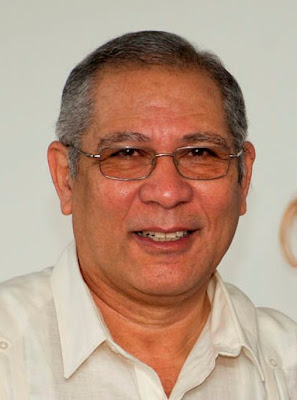Video del capitulo 1 de la serie de programas especiales La Isla de los Espías: Revelamos grabaciones de conversaciones secretas de agentes de Cuba en EEUU
AmericaTeVe Miami
17 de junio, 2024
La Isla de los Espías: Revelamos grabaciones de conversaciones secretas de agentes de Cuba en EEUU
*********************
Tomado de
http://www.nytimes.com/1992/11/11/us/leader-of-exile-group-tells-of-spying-for-cuba.html
Leader of Exile Group Tells of Spying for Cuba
By LARRY ROHTER,
Published: November 11, 1992
MIAMI, Nov. 10— The commander of one of the most militant Cuban exile organizations stunned the anti-Castro movement this week by announcing that he had worked as a spy for Cuba since 1979.
But equally surprising, the man, Francisco Avila Azcuy, also says he has been providing the American Government with information on the Cuba's spy network in the United States and on the activities of various anti-Castro exile groups.
Mr. Avila, who is chief of operations for Alpha 66, a paramilitary group that has organized attacks against Cuba from American shores and that advocates the overthrow of the country's Communist regime, discussed his role as a double agent with a Spanish-language television station in Miami in
 interviews that are being broadcast this week.
interviews that are being broadcast this week.In the interviews, Mr. Avila said that among other things he had organized Alpha 66 attacks on Cuba at the behest of the Cuban Government with money supplied by Cuban intelligence agents and that he was asked to monitor the activities of prominent Cuban exiles in Miami.He said he had decided to make his role public rather than wait for it to become known if the Castro Government fell. Embarrassment to Castro
Mr. Avila's account, if true, of how Havana created its own enemies to justify its repressive policies is a major embarrassment for the Castro Government. It also tarnishes the image of exile commando groups that portray themselves as the Castro Government's most-feared enemies but who may have been sustained by it.
United States Government agencies have so far refused to confirm or deny the details of Mr. Avila's tale of espionage and betrayal. But the State Department today told a Cuban diplomat who was videotaped by the station while discussing spy missions with Mr. Avila in a Queens restaurant last month that he must leave the country within 48 hours. The tapes are to be broadcast as part of the television station's series.
The Cuban official, Carlos Manuel Collazo Usallan, is assigned to the Cuban Mission to the United Nations in Manhattan, with the nominal rank of third secretary. Richard Boucher, a State Department spokesman, said today that Mr. Collazo was being expelled because of "activities inappropriate to his responsibilities at the United Nations," a phrase typically used to describe espionage.
In six hours of interviews with reporters from WSCV-TV, the Miami affiliate of the Telemundo television network, Mr. Avila said the Cuban Government had given him money to help finance the activities of Alpha 66, including thousands of dollars to buy a boat that was used in attacks on Cuba. Reports Lead to Trial
As early as January 1981, Mr. Avila said in an interview to be broadcast later this week, he helped organize an Alpha 66 raid on Cuba, with the knowledge and support of Cuban agents. But he said he also informed American officials of the planned attack, and they moved against organizers of the raid before it could be undertaken.
As a result, seven people were convicted of violating provisions of the Neutrality Act that prohibit the organization of attacks on foreign governments from American soil. "Better 18 months in an American prison than to be shot or jailed in Cuba," Mr. Avila said in justifying his reporting the plan.
More recently, Mr. Avila said, Cuban intelligence agents operating under diplomatic cover had asked him to gather information on the personal lives and habits of 40 prominent anti-Castro figures in the United States. He said he had also been asked to gather intelligence on a site in the Florida Keys used by the United States Government to broadcast anti-Castro news and entertainment programs by television to Cuba, perhaps for an attack on the source of the broadcasts.
The broadcast on Monday night of the first report based on interviews with Mr. Avila had immediate repercussions among Cuban exile groups here. His confession that he was a Cuban spy was the main topic on Spanish-language radio stations here, with reporters and panelists arguing that the 40 names were part of an assassination list and wondering how many other spies could still be operating inside exile groups.
Mr. Avila told the television reporters that he came to the United States from Cuba as a teen-ager in the early 1960's, and soon afterwards joined Alpha 66. In 1967, he was sent to Cuba on an infiltration and sabotage mission, but was captured, tried and sentenced to 25 years in prison.
While serving his sentence, Mr. Avila said, he was approached by the D.G.I., the Cuban intelligence agency, and asked to become a spy. He said he readily agreed, to gain his release. "Getting inside them was one way to continue the struggle against them," he said.
Mr. Avila asserts that not long after his return here, he contacted what he described as an "American counterintelligence agency" and was almost immediately put to work as a double agent. The programs' producers said Mr. Avila led them to believe that he was speaking of the Federal Bureau of Investigation, whose responsibilities include monitoring foreign spy activities in the United States. A spokesman for the agency, Bill Carter, declined to comment on Mr. Avila's story.
Photo: Francisco Avila Azcuy being interviewed on a Spanish-language television station in Miami. (WSCV-TV).
Etiquetas: 12 000 dólares, agente, Alfa 66, Alpha 66, autoagresión, Azcuy, castrista, cuba, dgi, DI, espionaje, Francisco Ávila, Isla de espías, Juan Manuel Cao, lancha, Panchito















0 Comments:
Publicar un comentario
<< Home